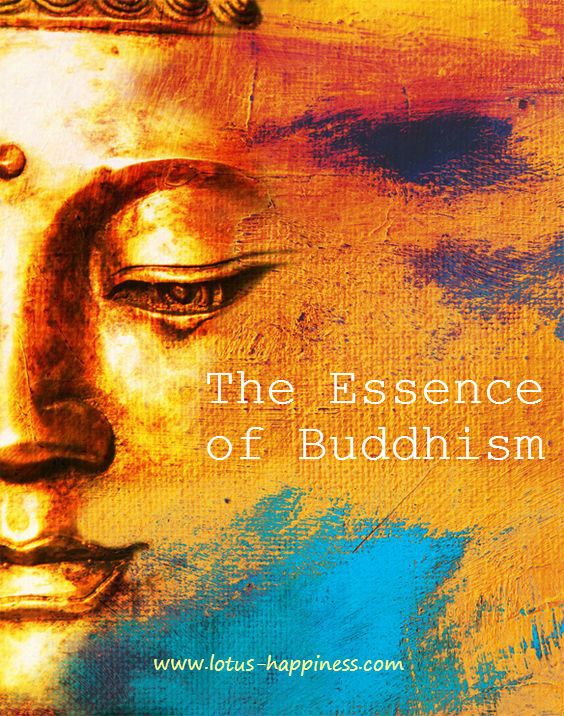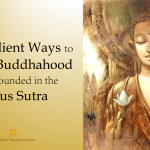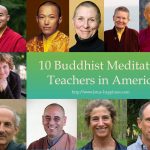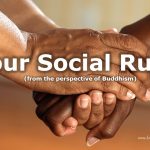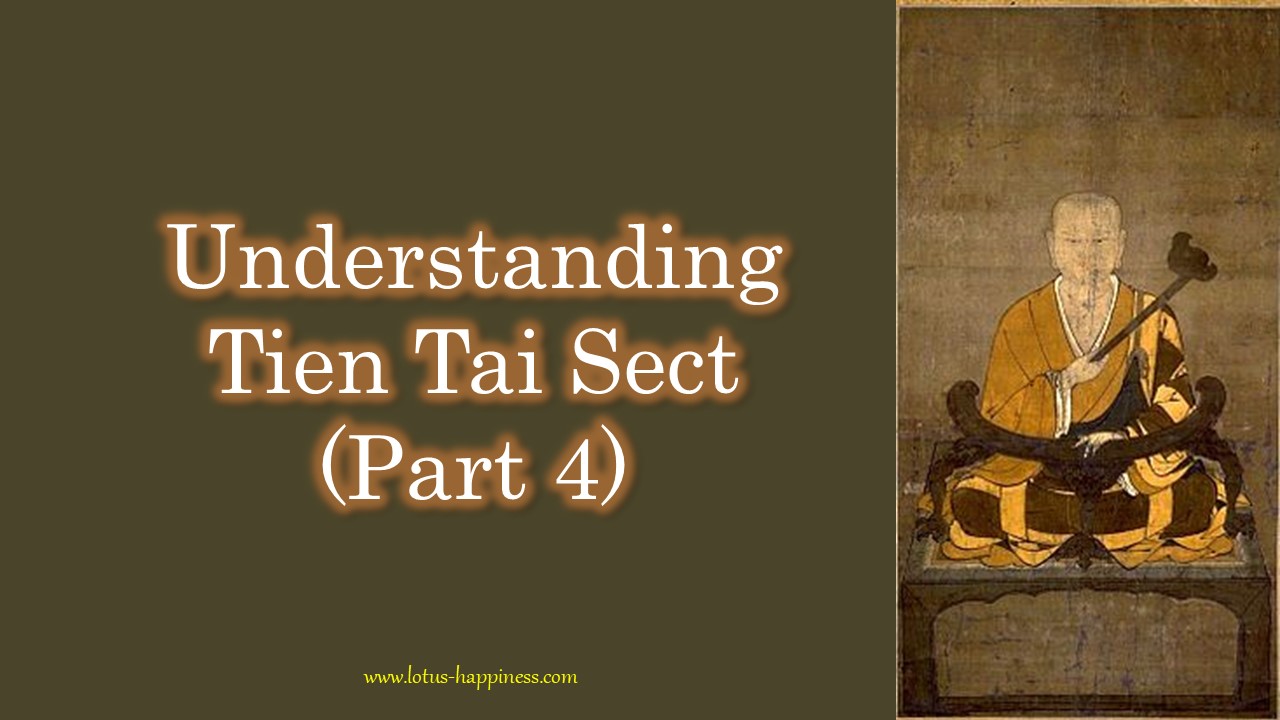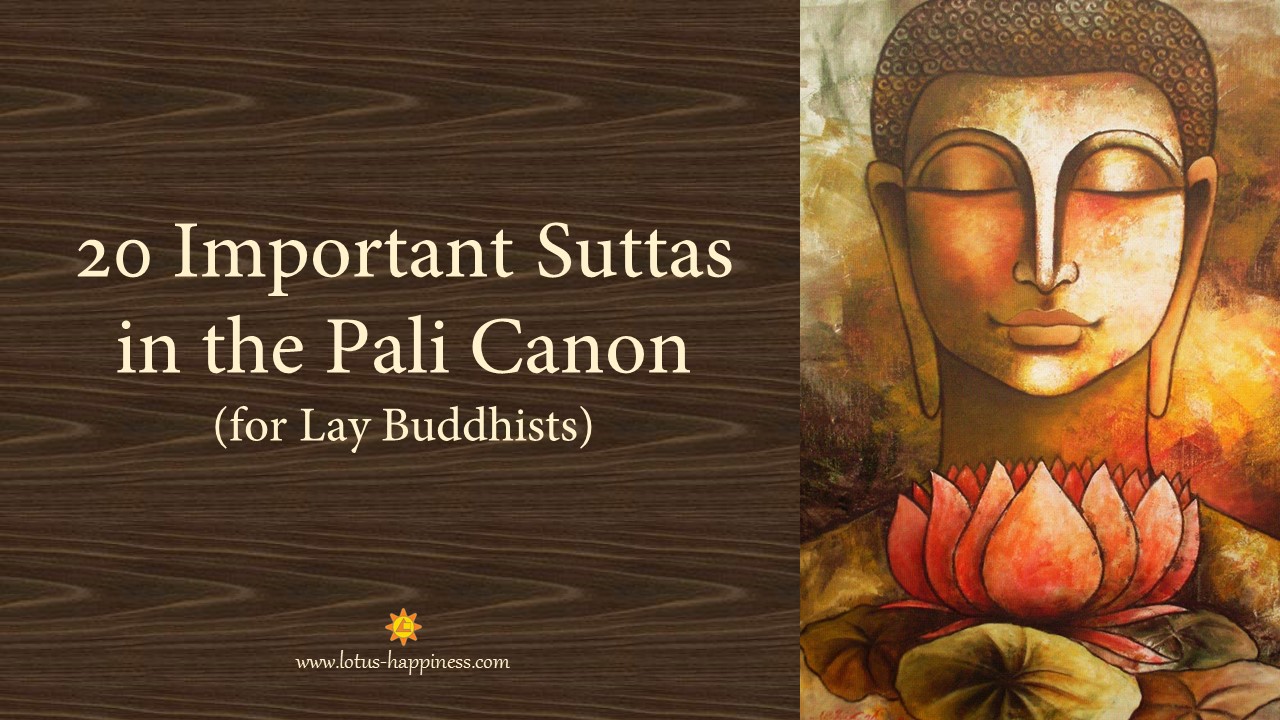Background
The other day, I was browsing the web and chanced upon one of the videos in Buddhist Youth Network. This video is an interview of Ven. Matthew Richard, the French Buddhist monk who has served as the French interpreter for the Dalai Lama since 1989. Here is the short transcript of sharing by Ven. Matthew Richard:
“I met someone in Delhi India, there was a dinner in, you know, typical mundane people, and they asked me, ‘Can you tell us the essence of Buddhism in two words?’ And I said that, ‘I practiced retreats for years, it was all “interiorized” with my teaching, but I find myself unable to say in few words. I was practising as much as I could but I had not integrated intellectually so that I could deliver a speech, you know. And I think this takes time…..”
On another occasion, I saw the reply from Ven. Thubten Chodron on “What is the essence of the Buddha’s teachings” in a Buddhist magazine:
“Simply speaking, it is to avoid harming others and to help them as much as possible. Another way of expressing this is, ‘Abandon negative action; create perfect virtue; subdue your own mind. This is the teaching of the Buddha.’…”
The answers given by these Buddhist masters set me pondering: “Is this truly the essence of the Buddha’s teachings, from the perspective of Shakyamuni Buddha?”
Essence of Buddhism from All Buddhist Leaders
Every individual is unique and distinctive. How people perceive the essence of Buddhism is dependent on their own understanding, which is often influenced by their own background, personal experience, and individual preference.
From my experience, the answers given are usually along these lines: do good, avoid evil; emptiness; Four Noble Truths, mindfulness, compassion, reborn in the pure land of Amitabha, oneness of mentor and disciple etc.
For Nichiren Daishonin, the essence of Buddhism is expressed as “Nam Myoho Renge Kyo” which literally means Devotion to the Magnificent Law of White Lotus. (Yes, Nichiren got it. The essence of Buddhism is indeed in the Lotus Sutra.)
As you can see, the answers are immeasurable. Most often than not, the answer reflects the personal background, moral values, and individual preference of the Buddhist leaders, rather than the view of the Shakyamuni Buddha.
Rather than understanding the essence of Buddhism from the individual interpretation of Buddhist leaders, let us give some thought on what is the perspective of Shakyamuni Buddha himself.
To make the question more specific, the questions become:
“What is the essence of Buddhism from the perspective of Shakyamuni Buddha?”
Essence of Buddhism from Shakyamuni Buddha’s Perspective
The essence of Buddhism from the perspective of Shakyamuni Buddha is “Attaining Buddhahood.” This is an understanding based solely upon scriptural evidence in the Lotus Sutra, rather than individual’s preference or interpretation.
The Buddha has only one goal to achieve: to lead all living beings to become a Buddha just like him. In other words, to attain Buddhahood. This is the one and only ultimate purpose of the Buddha. However, the Buddha, knowing that each individual is different in terms of nature, desire and capacity, chooses to flexibly teach in accordance to a myriad of individuals and situations. Much as this pedagogy a mark of profound wisdom, it has nevertheless resulted in confusions for many people. Hence, Buddhism has become as bountiful and diverse as they are inexplicable and perplexing for most of us.
If you have read the Mahayana sutras such as Heart Sutra, Diamond Sutra, Amitabha Sutra, to name just a few, you will notice the word “Supreme Perfect Enlightenment” or in Sanskrit known as “Anuttara Samyak Sambodhi”. What is the meaning of this word? It means Buddhahood. The Buddha keeps highlighting and emphasizing the word “Supreme Perfect Enlightenment” so as to awaken the aspiration of the mind of Bodhi in his disciples. Herein lies the purpose of the Buddha – to lead his disciples to attain Buddhahood i.e. to become a Buddha.
Among the ocean of sutras, the Buddha only unveils, in the Lotus Sutra, the truth that all living beings (including human, regardless of race and religion, color and creed) have the potential for Buddhahood. Essentially, everyone, without except, can become a Buddha. Here are the evidence in the Lotus Sutra:
Chapter 2: Expedient Methods
“Since all of you are awakened to the fact that
all Buddhas, the Teachers of the Worlds,
apply the expedient methods to teach the Law,
have no further doubts and
let your hearts be filled with immense joy!
For you know you will also become Buddhas!” (Lotus Sutra 2: 5.100)
Chapter 5: Parable of Medicinal Herbs
“Now, for you and the rest
I preach the Ultimate Truth—
none of you is shravaka
seeking to attain parinirvana.
All of you are actually pursuing
the way of a bodhisattva.
So long as you gradually learn and practice,
in no time you will all become Buddhas!” (Lotus Sutra 5: 2.41)
Chapter 16: Eternal Lifespan of Tathagata
“Every day, I am thinking:
‘How can I lead all living beings
to enter the unsurpassed Way
so as to quickly acquire the body of a Buddha?’” (Lotus Sutra 16: 3.23)
Chapter 21: Divine Powers of Tathagata
“A person of wisdom should embrace the Lotus Sutra
upon hearing the merits
after my parinirvana.
People such as these
will definitely be able
to attain Buddhahood!” (Lotus Sutra 21: 2.14)
The Buddha is absolutely focused in achieving his goal to guide people towards Buddhahood. The first step to become a Buddha is develop a desire to want to become a Buddha. This desire is known as “aspiration”, and it needs to be awaken and activated in the heart and mind of his disciples in order to set the wheel in motion.
How to awaken the mind of Bodhi? Just tell yourself: “I aspire to become a Buddha so that I can help billions of people to be happy.” Do not underestimate this lofty aspiration. The very intention of wanting to become a Buddha is a meritorious virtue and a field of tremendous blessings in itself. It has the power to purify, or even eradicate, your unwholesome karma, thus paving a path for you to transform suffering into happiness in your present lifetime.
What does attaining Buddhahood mean to you as a lay Buddhist? It means living the virtues of a Buddha – wisdom, compassion, courage, generosity – and doing the Buddha’s works of propagating his Buddha-Law. Becoming a Buddha means emulating the Buddha’s innumerable virtues in your actions, speech and intentions. It also means embracing the spirit of the Buddha within your heart.
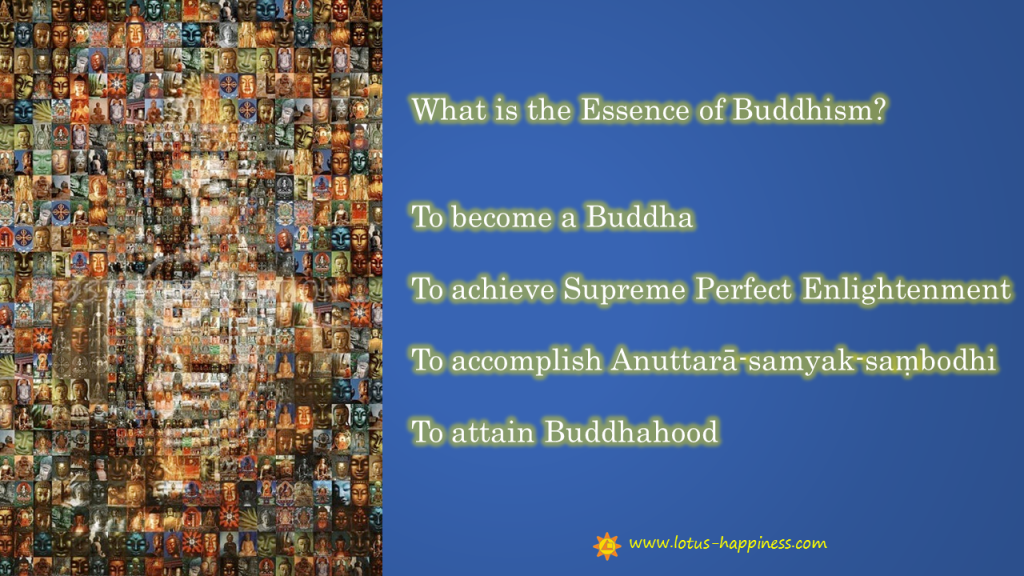
Let’s Connect
Here are ways to be updated of the latest posts:
Follow us by Liking our Facebook
Subscribe our Newsletter
Support Lotus Happiness
Share with your Friends

